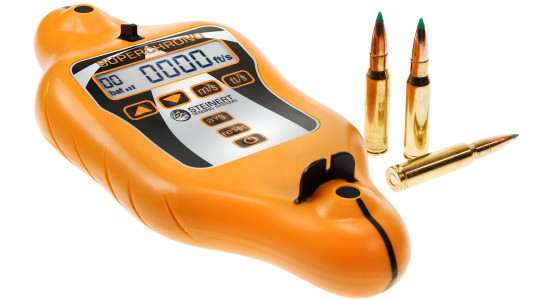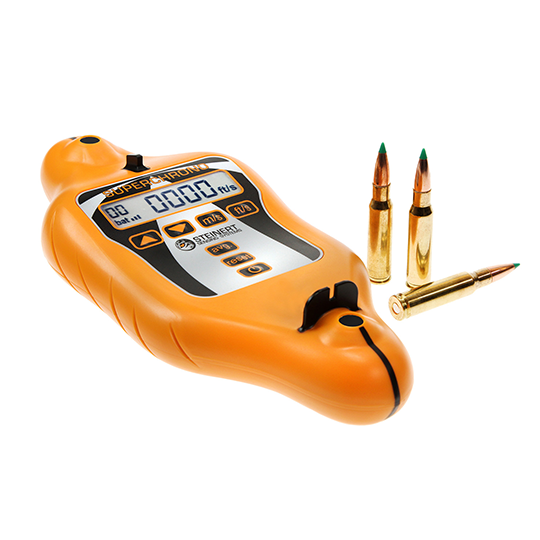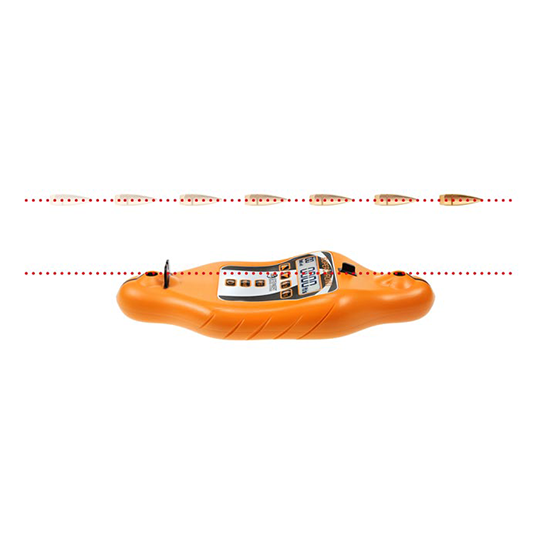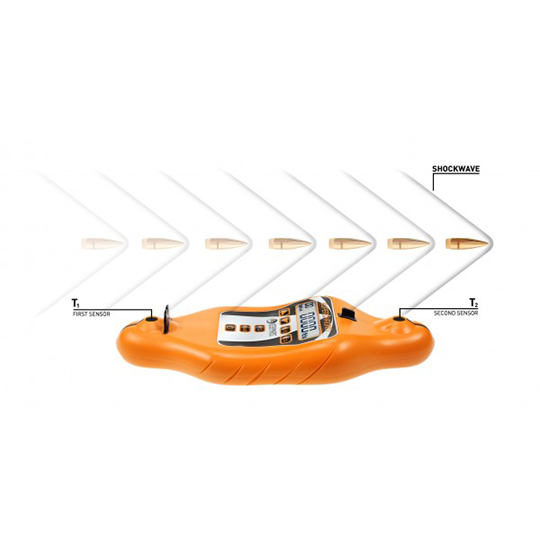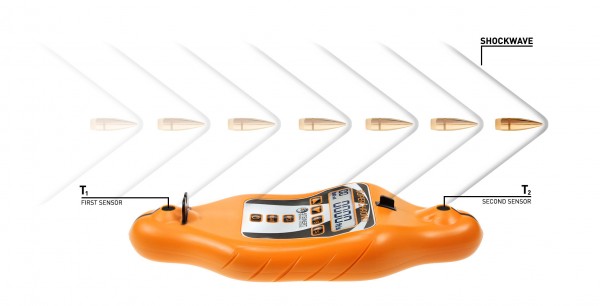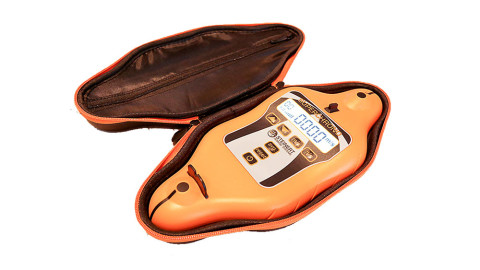After 30 years of optical chronographs, Steinert Sensing Systems finally delivers a new technology that gives you reliable shot speed readings in any lighting conditions.
SuperChrono® Acoustic Shooting Chronograph
The World’s First Acoustic Shooting Chronograph!
99% precision or better
The SuperChrono’s supersonic shockwave processing technology offers unsurpassed precision independent of lighting and weather conditions.
No more undetected shots
No more worries about sunlight orientation, uneven cloud cover, shadows, reflections from snow or water on the ground, low or indoor lighting, shiny projectiles, shadows or any other changes in light intensity that can cause problems with optical sensors. The SuperChrono detects shots even with rain or snow on its sensors.
Huge shooting area
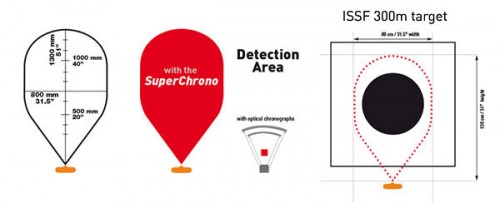
As an added bonus, the SuperChrono’s supersonic shockwave processing technology offers an optimum shooting area up to 300 times larger than the tiny 2×2 inch area for optical chronographs. This makes it easy to get velocity readings from close to the muzzle to any downrange distance as long as the bullet is supersonic.For the first time it’s easy to get downrange velocity readings and to calculate exact ballistic coefficient.
Monitor shots without leaving shooting bench
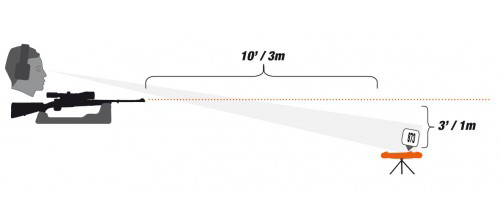
The display and its crystals are angled 15 degrees towards the shooter. By placing the SuperChrono 10′ in front and 3′ below the muzzle, shot speeds can be read without leaving the shooting position. High contrast backlit LCD and large numbers make velocities easy to read even in direct sunlight.
Measure bullet speeds at any distance
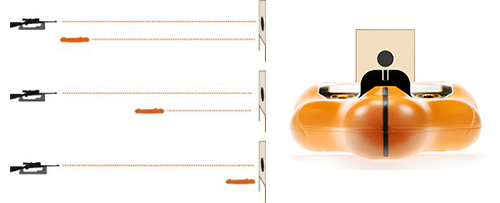
Built-in sight lines and front and rear sights make it easy to set up the SuperChrono for bullet speed readings at muzzle level, downrange and at target.
Easy to use as a diagnostic tool
Use the SuperChrono to check for variations in bullet speeds if you find an odd flyer in your shot group or if the groups are not as tight as expected.
Works with any calibre
It doesn’t matter if it’s a tiny .17 HMR or a rocket; if it’s supersonic, the SuperChrono gives an accurate reading of its velocity.
No menus. No loose parts
The SuperChrono is simplicity itself. No menus to learn and no loose parts to mislay.
You’ll find tips and hints on how to use the SuperChrono in the user guides below.
User guides
We use ultrasound microphones to detect the bullet’s shockwaves. As you can see from this figure, the shockwave first hits sensor one at T1 and then hits sensor two at T2
The SuperChrono’s incredibly fast electronics sample the sensors 40 million times every second. When T1 and T2 are registered, its microprocessor calculates and displays the velocity of the bullet.
As an example, let us say the difference between the readings at each sensor is 0.00025 seconds, while the distance between the two sensors is 200 millimetres. The time it takes the bullet to travel one metre is therefore 0.00025 x 1000/200 = 0.00125 seconds. This gives a bullet speed of 1/0.00125 = 800 metres per second or 2625 ft/s.
Sensor type: Ultrasound microphones Detection principle: Passing of Mach cone Detection distance: From 3m (10'') from the muzzle to any downrange distance for supersonic speed Velocity range: Mach 1.1 to Mach 5 in dry air at 20°C (68°F) = 376 - 1717 m/s or 1234 - 5632 ft/s Calibre range: 4.3mm (.17) to 84mm Precision: ±0.5% of measured velocity or better Minimum time between shots: 100ms = 600 rounds per minute Shooting area, max height: 1.3m (51'') above sensors Shooting area, max width: 80cm (31.5'') at 100cm (40'') above sensors Size: 260mm x 120mm x 46mm (10.2'' x 4.7'' x 1.8'') Weight: 294g (10.4oz) without batteries Batteries: 4 AA; NiMh, Li-Ion or alkaline Battery life: 16 hours with alkaline batteries

